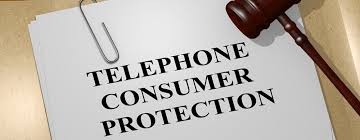In today’s hyper-connected world, communication technologies have become a double-edged sword. On one side, they enable seamless interaction; on the other, they can be used to infringe on personal privacy. The Telephone Consumer Protection Act (TCPA) was enacted in 1991 to address such privacy concerns. However, violations of this act have become alarmingly common, leaving many individuals vulnerable to unwanted and intrusive communications. Understanding TCPA violations and knowing when to consult a TCPA lawyer is crucial in protecting your rights.
What Is the TCPA?
The TCPA is a federal law designed to safeguard consumers from unsolicited communications, particularly telemarketing calls, text messages, and faxes. The legislation aims to regulate how businesses can reach out to individuals for promotional purposes. Key provisions of the TCPA include:
- Do Not Call Registry: Companies are prohibited from calling numbers listed on the National Do Not Call Registry unless explicit consent has been given.
- Restrictions on Automated Calls: Businesses must obtain prior express consent before using autodialers or prerecorded messages.
- Time Restrictions: Telemarketing calls are only allowed between 8 a.m. and 9 p.m. local time.
- Opt-Out Mechanisms: Consumers must be provided with a clear method to opt out of receiving further communications.
Violations of these provisions can result in substantial penalties, including fines of up to $1,500 per violation for willful breaches.
Common Types of TCPA Violations
TCPA violations occur in various forms, often involving unethical or careless business practices. Here are some of the most common examples:
Unsolicited Robocalls and Texts:
Automated messages sent without prior consent are a clear breach of the TCPA. These include marketing texts or calls made using autodialing technology.
Ignoring the Do Not Call Registry:
Telemarketers contacting individuals whose numbers are listed on the Do Not Call Registry without permission are violating federal law.
Failure to Provide Opt-Out Options:
Companies must allow recipients to opt out of receiving further communications. Failing to provide this option constitutes a TCPA violation.
Misuse of Consumer Data:
Sharing or selling consumer data without proper consent often leads to unauthorized marketing communications, violating TCPA guidelines.
Late-Night or Early-Morning Calls:
Contacting individuals outside the permitted hours of 8 a.m. to 9 p.m. is prohibited.
Why TCPA Violations Are a Growing Concern
The advent of sophisticated communication technologies has made it easier for businesses to reach large audiences. While this is beneficial for legitimate marketing, it has also led to an increase in spam calls and messages. Consumers report millions of complaints annually, with many businesses flouting TCPA regulations to maximize reach. This growing concern underscores the importance of holding violators accountable.
The Role of a TCPA Lawyer
If you’ve been a victim of TCPA violations, consulting a TCPA lawyer can help you navigate the complexities of the law and seek justice. Here’s how a TCPA lawyer can assist:
1. Case Evaluation
A TCPA lawyer will review your case to determine whether the communications you received constitute a violation. This involves analyzing the nature of the calls or messages, the presence (or absence) of consent, and adherence to opt-out procedures.
2. Filing a Claim
TCPA violations allow consumers to file lawsuits against offending companies. Your lawyer will help you prepare and file a claim, ensuring all necessary evidence is documented.
3. Negotiating Settlements
Many businesses prefer to settle TCPA claims out of court to avoid prolonged litigation and potential reputational damage. A TCPA lawyer will negotiate on your behalf to secure a fair settlement.
4. Litigation Support
If your case proceeds to court, having a skilled TCPA lawyer is essential. They will present your case effectively, using evidence and legal arguments to demonstrate the violation and its impact on your privacy.
How to Identify a TCPA Violation
To identify a potential TCPA violation, consider the following questions:
- Did the communication involve an autodialer or prerecorded message?
- Were you contacted without prior express consent?
- Was your number listed on the Do Not Call Registry?
- Were you provided with a clear opt-out option?
- Did the call or message occur outside the permitted time frame?
If you answered “yes” to any of these questions, you might have grounds for a TCPA claim. Consulting a TCPA lawyer can clarify your rights and options.
Why Choose a TCPA Lawyer
Navigating TCPA regulations and legal processes can be daunting without expert guidance. A specialized TCPA lawyer possesses:
- In-Depth Knowledge: Understanding the nuances of TCPA laws and relevant case precedents.
- Experience with Similar Cases: Familiarity with handling TCPA claims and achieving favorable outcomes.
- Negotiation Skills: Expertise in securing settlements that reflect the severity of the violation.
- Litigation Experience: Proficiency in representing clients in court if necessary.
Protecting Yourself from TCPA Violations
While legal action is a recourse for TCPA violations, prevention is always better than cure. Here are some steps to protect yourself:
- Register on the Do Not Call List: Add your number to the National Do Not Call Registry.
- Document Communications: Keep records of unsolicited calls or messages, including timestamps and content.
- Avoid Sharing Personal Data: Be cautious when sharing your phone number online or with businesses.
- Report Violations: File complaints with the Federal Communications Commission (FCC) or the Federal Trade Commission (FTC).
Conclusion
TCPA violations not only infringe on privacy but also disrupt daily life. Understanding your rights under the TCPA and seeking assistance from a qualified TCPA lawyer can help you hold violators accountable and obtain compensation for damages. Whether it’s unsolicited robocalls, marketing texts, or other breaches, don’t let your rights be disregarded. Stay vigilant, document violations, and take proactive steps to protect your privacy.
